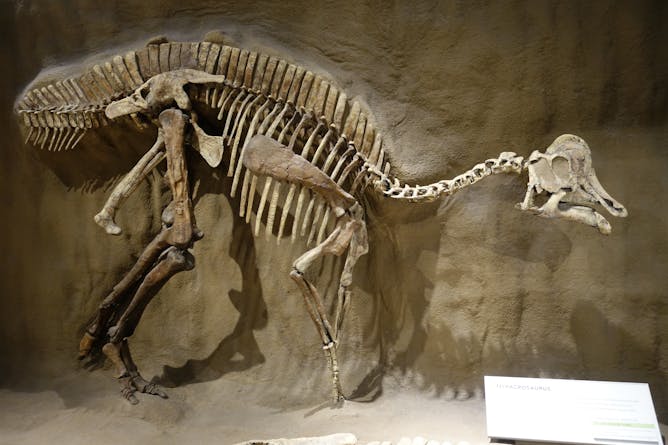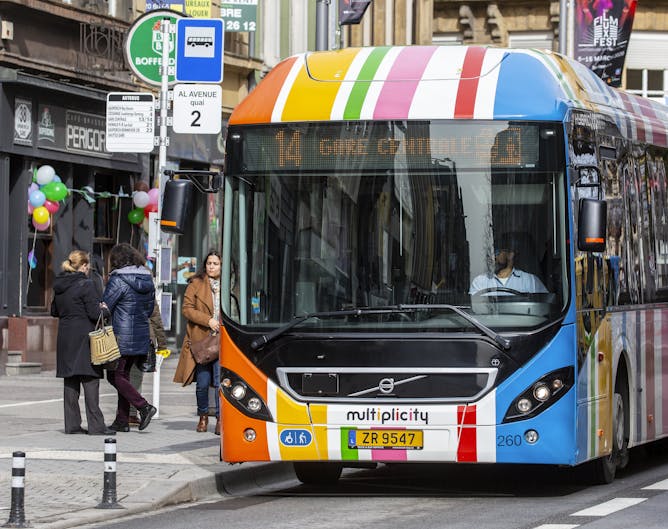|
|
|
Editor's note
|
|
Every time a new Jurassic Park film comes out, people like to ask if we’re any closer to making the resurrection of dinosaurs a reality. The answer is usually a disappointing (or reassuring) no. But several discoveries in the last few years have promised a different response.
A new paper does this by claiming to have identified microstructures in fossilised cartilage as the remains of dinosaur DNA. If that were true, perhaps it could be the first step towards bringing the extinct creatures back to life.
But there are some big problems. Not only is it highly unlikely that fragile DNA molecules have really survived more than 66 million years of decay. But there’s also a good chance that any DNA that might be there comes from something other than dinosaurs – modern microbes, for example. Mike Benton examines why the scientists behind the new paper think their discovery is different – and why he’s yet to be convinced.
Elsewhere, we look at the evidence for whether Luxembourg’s recent move to become the first country in the world to make all public transport free will reduce car use. And for the latest article in our series on life’s big questions, we attempt the simple task of finding the answer to happiness: is it in achieving goals or can we be content with a life of simple pursuits?
|
Stephen Harris
Commissioning + Science Editor
|

|
|
Top stories
|

A Hypacrosaurus skeleton at the Royal Tyrrell Museum, Alberta.
Etemenanki3/Wikimedia Commons
Michael J. Benton, University of Bristol
Scientists claim to have found DNA in fossilised dinosaur cartilage.
|

Bus travel is now free for all passengers throughout Luxembourg.
EPA-EFE/JULIEN WARNAND
Enrica Papa, University of Westminster
Fare free public transport exists in at least 98 cities and towns around the world.
|

Don’t worry, be happy.
Shutterstock
Rafael Euba, King's College London
There are many ways to be happy, but we can also find comfort in the knowledge that our constant dissatisfaction is what makes us human.
|
Health + Medicine
|
-
Julian Hunt, Swansea University; John Gammon, Swansea University
Our findings also highlight that hot air hand dryers and cloth roller towels can be a problematic way of drying your hands.
-
Rachel Clutterbuck, University of Bath; Emily Taylor, University of Bath; Punit Shah, University of Bath
We found that one of the most widely used tests does not come up to scratch.
|
|
Science + Technology
|
-
Rachel Clamp, Durham University
Misinformation and "fake news" was also widespread during the Black Death.
|
|
Environment + Energy
|
-
Jack Marley, The Conversation
The homes of the future will be zero-carbon and energy efficient. We asked experts to give us the tour.
|
|
Politics + Society
|
-
Charles Barthold, The Open University; Martin Fougère, Hanken School of Economics
The French president presents himself to all things to all people – leaving voters with less meaningful choice at the ballot box.
|
|
Arts + Culture
|
-
Benjamin Weber, Stockholm University
The word has many meanings depending on your beliefs about religion, politics and culture
|
|
| |
Featured events
|

|
Room ARC/014, Alcuin Research Resource Centre, Campus West, York, York, YO10 5DD, United Kingdom of Great Britain and Northern Ireland — University of York
|

|
Bowland Auditorium, Berrick Saul Building, Campus West, York, York, YO10 5DD, United Kingdom of Great Britain and Northern Ireland — University of York
|

|
East Road, Cambridge, Cambridgeshire, CB11PT, United Kingdom of Great Britain and Northern Ireland — Anglia Ruskin University
|

|
East Road, Cambridge, Cambridgeshire, CB11PT, United Kingdom of Great Britain and Northern Ireland — Anglia Ruskin University
|
|
|
|
| |
| |
| |
| |
| |
|
|
|
|
|
|
|